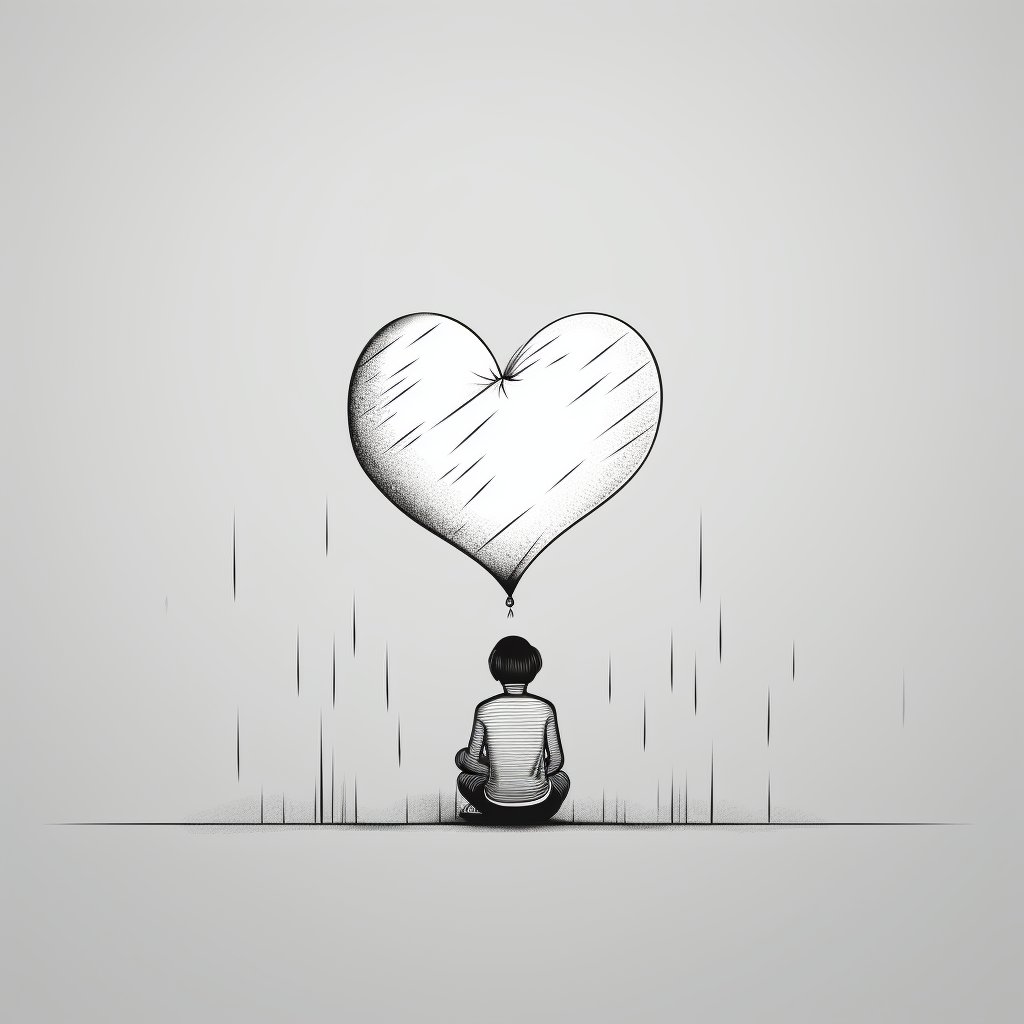Valentine’s Day Loneliness: How to Not Feel Lonely on Valentine’s Day

🎧 Listen to this Article 🎧
Valentine’s Day, traditionally known as a day dedicated to expressing affection and love, has evolved into a global celebration marked by romantic gestures, heartfelt messages, and the exchange of tokens of affection. Couples worldwide eagerly anticipate this day as an opportunity to celebrate their love and commitment.
Amidst the sea of romantic fervor, there exists a silent struggle that often goes unnoticed – Valentine’s Day loneliness. For many individuals, this day serves as a stark reminder of their singlehood, unrequited love, or the absence of a significant other. The societal emphasis on romantic relationships during this time can magnify the sense of isolation for those not partaking in the celebrations.
Recognizing and understanding the emotional challenges associated with Valentine’s Day loneliness is crucial. It goes beyond a simple lamentation of solitude; it delves into the impact on mental well-being and self-esteem. By shedding light on this prevalent issue, we can foster empathy, encourage inclusivity, and explore ways to support individuals who grapple with the pangs of Valentine’s Day loneliness.
10 Tips to Overcome the Valentine’s Day Loneliness

Here are some tips that you can use to overcome feeling lonely on Valentine’s day:
1. Self-Love Rituals
Engage in activities that prioritize your well-being and bring personal joy. This could involve practicing mindfulness, indulging in favorite hobbies, pampering yourself with self-care routines, or simply taking time for activities that contribute to a positive and fulfilling relationship with yourself.
2. Connect with Loved Ones
Strengthen bonds with friends and family to counteract loneliness. Reach out through calls, video chats, or plan gatherings. Sharing experiences and maintaining connections can provide a sense of companionship, reminding you that meaningful relationships extend beyond romantic partnerships.
3. Organize Alternatives
Take charge of Valentine’s Day by planning alternative celebrations with friends, family, or yourself. Create enjoyable activities or events that redefine the day, allowing you to focus on meaningful connections and personalized experiences, steering away from traditional romantic expectations.
4. Express Gratitude
Shift your focus toward the positive aspects of life. Take time to acknowledge and appreciate the relationships, experiences, and accomplishments that bring joy. Practicing gratitude can cultivate a mindset of contentment, fostering a sense of fulfillment even amid Valentine’s Day loneliness.
5. Seek Professional Support
Consider consulting with therapists or counselors to navigate emotions related to Valentine’s Day loneliness. Professional support offers a confidential space for exploration, providing personalized guidance and coping strategies to manage and understand complex feelings associated with being alone on this day.
6. Media Detox
Limit exposure to romanticized content, especially on Valentine’s Day. Unplug from societal expectations portrayed in media, reducing the impact of idealized relationships. This intentional break allows for a more balanced perspective, promoting self-love and minimizing the influence of external pressures on feelings of loneliness.
7. Embrace Solo Pleasures
Indulge in activities that bring personal joy and fulfillment. Treat yourself to favorite meals, engage in hobbies, or enjoy a peaceful moment alone. Embracing solo pleasures fosters a sense of self-indulgence and contentment, empowering you to find happiness independently during Valentine’s Day.
8. Practice Mindfulness
Stay present in the moment and cultivate a positive mindset. Mindfulness involves focusing on the current experience without judgment. During Valentine’s Day, this practice can help reduce stress, enhance self-awareness, and contribute to a more balanced and emotionally resilient state.
9. Join Support Communities
Connect with others facing Valentine’s Day loneliness by participating in online support groups. These communities offer shared experiences, understanding, and encouragement. Joining allows you to feel supported, fostering a sense of belonging and providing valuable perspectives during this challenging time.
10. Volunteer
Contribute to your community by volunteering on Valentine’s Day. Helping others brings a sense of fulfillment and joy, redirecting focus from personal challenges to collective well-being. It provides a purposeful and meaningful way to spend the day, fostering a positive and altruistic mindset.
| Find Out More: How to Survive Valentine’s Day Depression
Causes of Feeling Lonely on Valentine’s Day

Singlehood Stigma
Being alone on Valentine’s day often intertwines with the prevailing singlehood stigma, contributing to a sense of inadequacy or societal judgment. The cultural narrative surrounding Valentine’s Day tends to prioritize romantic relationships, inadvertently marginalizing those who embrace or find themselves in the midst of singlehood. The stigma associated with being alone on Valentine’s day can foster feelings of alienation and perpetuate the misconception that a person’s worth is inherently tied to their relationship status.
Commercialization of Love
The commercialization of love has transformed Valentine’s Day into a lucrative industry, with businesses capitalizing on the notion that grand gestures and material expressions equate to the depth of one’s love. For individuals being alone on Valentine’s day, the relentless marketing of extravagant gifts and romantic experiences can lead to a damaging association between material expressions of love and personal self-worth. This commercialization not only reinforces societal expectations but also contributes to feelings of inadequacy when one does not partake in these consumer-driven displays of affection.
Idealized Relationships Portrayed in Media
Idealized relationships portrayed in media further contribute to the complexities of being alone on Valentine’s day. Film, television, and social media often depict romantic narratives with picture-perfect scenarios, fostering unrealistic expectations. Comparisons with these idealized relationships can intensify feelings of isolation and inadequacy, as individuals measure their own experiences against fictionalized and embellished depictions of love. Challenging these unrealistic standards and acknowledging the diversity of relationship experiences is essential for dismantling the harmful impact of media-driven comparisons.
| Learn More: Nurturing Mental Health on Valentine’s Day
The Reality of Valentine’s Day Loneliness
As Valentine’s Day approaches, it’s essential to delve into the stark reality of individuals feeling lonely on Valentine’s day. Numerous studies shed light on the prevalence of this emotional challenge, indicating that a significant portion of the population experiences heightened feelings of isolation during this seemingly celebratory period.
The Impact of Relationship status on Feelings of Loneliness
Research consistently demonstrates a correlation between relationship status and the intensity of loneliness on Valentine’s Day. Singles, those in long-distance relationships, or individuals navigating recent breakups may find themselves grappling with a heightened sense of solitude, accentuated by societal expectations centered around romantic partnerships during this time.
Social Media’s Role
In an era dominated by social media, the virtual realm can inadvertently intensify the experience of feeling lonely on Valentine’s Day. Endless streams of romantic posts, couple-centric advertisements, and curated displays of affection can create a pervasive sense of exclusion for those not actively participating in romantic celebrations. The comparative nature of social media often amplifies feelings of inadequacy, adding an additional layer to the complex tapestry of Valentine’s Day loneliness.
| Explore Further: January Blues; Why is January Depressing?
The Psychological Impact

Being single on Valentine’s day can take a substantial emotional toll on individuals, triggering a range of feelings from sadness to self-doubt. The cultural emphasis on romantic love during this period can intensify the perceived societal pressure to conform to relationship norms, making those without a partner feel as though they fall short of societal expectations. The emotional impact is not merely a fleeting sentiment but can have lasting effects on mental well-being, contributing to heightened stress and a sense of isolation.
Societal Expectations and Loneliness
The connection between societal expectations and the experience of loneliness on Valentine’s Day is profound. The romanticized portrayal of love and companionship in media and advertisements sets an idealized standard that can leave individuals feeling inadequate if their reality does not align with this fantasy. Breaking down these societal norms and fostering a more inclusive narrative is crucial to alleviating the psychological burden that often accompanies being single on Valentine’s day.
Continue reading…
HealWiser’s Last Piece of Advice
In acknowledging the nuanced challenges of Valentine’s day loneliness, we explored its roots in societal expectations, commercialization, and media influences. From the emotional toll on individuals to the impact of singlehood stigma, understanding these factors is vital for compassionate discourse.
As we navigate Valentine’s day, let’s prioritize self-love, connection with friends and family, and seek professional support when needed. Empowering ourselves with resilience and self-compassion is essential.
Let’s redefine Valentine’s Day, embracing inclusivity and celebrating all forms of love. By dismantling stereotypes and promoting empathy, we pave the way for a more compassionate and understanding cultural narrative.
Sharing your experience can provide valuable insights and emotional support. So…
…share your story with HealWiser and others in the comments section below this post.






